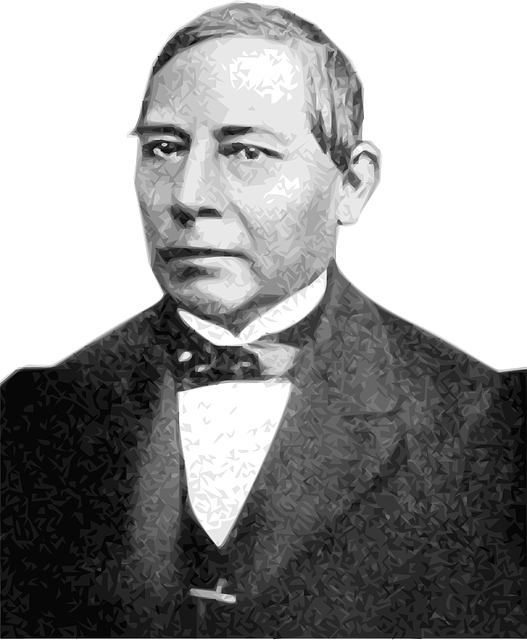Community service, particularly through Blood Alcohol Level Testing (BALT) programs, is a powerful tool for restorative justice. BALT educates participants about impaired driving's impact, promotes responsible behavior, and encourages accountability. This hands-on approach breaks misconduct cycles, strengthens community bonds, and fosters long-term behavioral changes. By integrating BALT into service projects, communities can deter substance abuse, ensure well-being at events with alcohol, and transform remorse into tangible results that positively impact society. Effective community service initiatives require strategic planning, collaboration, and diverse approaches while upholding ethical principles and privacy guidelines.
Community service, as a form of restorative justice, offers a powerful avenue for making amends and rebuilding connections. This article explores the transformative potential of community service in fostering healing and accountability. We delve into key strategies, including innovative tools like Blood Alcohol Level Testing, to enhance program effectiveness. By connecting amends with tangible actions, engaging communities, and addressing ethical considerations, we can create meaningful change. Discover inspiring success stories and gain insights into implementing impactful community service programs.
- The Impact of Community Service on Restorative Justice
- Blood Alcohol Level Testing: A Tool for Accountability
- Connecting Amends with Action: Engaging the Community
- Ethical Considerations in Community Service Sentences
- Effective Strategies for Implementing Community Service Programs
- Success Stories: How Community Service Makes a Difference
The Impact of Community Service on Restorative Justice

Community service, as a form of restorative justice, plays a pivotal role in fostering healing and reconciliation within communities. When individuals engage in community service projects, they actively contribute to the well-being and improvement of their surroundings. This hands-on approach offers several advantages over traditional punitive measures, especially when addressing issues like substance abuse or impaired driving.
For instance, Blood Alcohol Level Testing (BALT) programs, often incorporated into community service sentences, serve as educational tools. They raise awareness about the impact of alcohol on driving and personal safety, promoting responsible behavior. By participating in such initiatives, offenders gain a deeper understanding of their actions’ consequences, fostering a sense of accountability. This restorative aspect is key to breaking cycles of misconduct and encouraging positive change, ultimately strengthening the community’s fabric.
Blood Alcohol Level Testing: A Tool for Accountability

Blood Alcohol Level Testing (BALT) serves as a powerful tool within community service programs aimed at promoting accountability and responsible behavior, especially in scenarios where alcohol is involved. This non-invasive method allows authorities or community leaders to measure an individual’s blood alcohol concentration, providing a tangible metric of their adherence to rules and regulations. By integrating BALT into service projects, communities can effectively deter substance abuse and ensure the well-being of all members, particularly during events or initiatives where alcohol may be present.
The implementation of BALT as a community service component fosters a culture of transparency and responsibility. It empowers participants to take ownership of their actions by demonstrating the direct correlation between blood alcohol levels and potential consequences. This educational aspect can significantly contribute to long-term behavioral changes, encouraging individuals to make more conscious decisions regarding alcohol consumption.
Connecting Amends with Action: Engaging the Community

Connecting Amends with Action: Engaging the Community
When it comes to making amends, simply saying “I’m sorry” isn’t enough. Effective reconciliation involves taking concrete actions that demonstrate a genuine commitment to change and accountability. This is where community service plays a pivotal role. By engaging in meaningful community projects, individuals or groups can turn their remorse into tangible results, addressing societal issues and fostering healing.
One powerful example of this transformation is seen in initiatives like Blood Alcohol Level Testing (BALT) programs. These campaigns not only raise awareness about responsible drinking but also offer opportunities for participants to give back by volunteering at local support groups or participating in safety patrols. Such hands-on involvement strengthens the impact of amends, ensuring that apologies are backed by actions that positively influence the community.
Ethical Considerations in Community Service Sentences

In the realm of community service as a form of amends, ethical considerations are paramount. When individuals are sentenced to complete community service hours, it’s crucial to balance rehabilitation with the well-being and dignity of both the offender and the communities they serve. One such consideration is ensuring that the tasks assigned are meaningful and contribute positively to society, avoiding mundane or dehumanizing work.
Additionally, privacy and consent become significant factors, especially when dealing with sensitive areas like Blood Alcohol Level Testing (BALT) programs. Community service sentences involving BALT must adhere to strict ethical guidelines, guaranteeing informed consent from participants and protecting their personal health data. These measures foster a sense of trust and ensure that community service remains a constructive path towards personal growth and societal contribution.
Effective Strategies for Implementing Community Service Programs

Implementing community service programs that make amends and drive positive change requires strategic planning and diverse approaches. One effective strategy is to engage local organizations and volunteers, leveraging their unique expertise and connections within the community. This collaborative model ensures that services are tailored to specific needs, fostering a sense of ownership and sustainability.
Additionally, integrating specialized programs like Blood Alcohol Level Testing can significantly enhance the impact. Such initiatives not only promote public safety but also educate individuals about responsible behavior, addressing underlying issues contributing to societal problems. By combining these strategies, community service programs can become more effective, far-reaching, and impactful in making amends and building stronger, safer communities.
Success Stories: How Community Service Makes a Difference

Community service, an act of giving back to society, often takes many forms—from tutoring underprivileged children to cleaning up local parks. Yet, one significant area where it makes a tangible difference is in public safety and health initiatives. For instance, consider Blood Alcohol Level (BAL) testing programs, which have been instrumental in raising awareness about responsible drinking and preventing drunk driving.
These community service projects not only educate individuals but also provide crucial data that informs policy changes. Success stories abound; for example, areas that implement regular BAL testing events often see a notable decrease in alcohol-related accidents and fatalities. Such initiatives foster a culture of accountability and responsibility, making amends for past neglect and contributing to a safer, healthier community.
Community service, when effectively implemented with tools like Blood Alcohol Level Testing, offers a powerful avenue for restorative justice. By connecting amends with action and fostering community engagement, it becomes a transformative process that not only holds individuals accountable but also strengthens social bonds. Ethical considerations and successful strategies outlined in this article highlight the potential of community service to create positive change, as evidenced by inspiring success stories. This approach promises a more holistic and impactful path towards justice and reconciliation.






